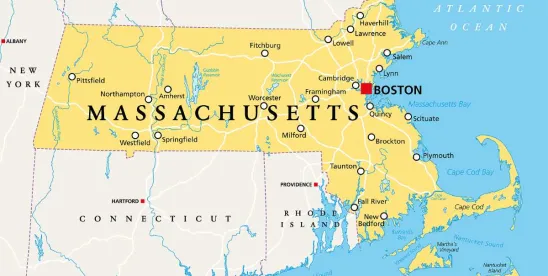In November, we wrote about Massachusetts legislative and regulatory updates that impact both nursing homes and assisted living residences.
Read our previous alert here.
Recent events, including attention from the Massachusetts attorney general and the filing of class action litigation against a Massachusetts assisted living operator, have underscored increased regulatory and legal attention to the practices of assisted living residences that may be perceived to adversely impact residents.
Attorney General Regulations and Public Hearings
We have now seen Massachusetts Attorney General Andrea Joy Campbell take a keen interest in the space, particularly with respect to unfair and deceptive acts and practices. In October, the Attorney General’s Office sought public feedback on precisely this issue, which will be used in crafting consumer protection regulations designed to shield residents of assisted living homes from misleading business practices. The office expects to release a draft of those regulations early next year before scheduling a public hearing and opportunity for the public to comment on the proposed regulations.
Class Action Litigation
Massachusetts assisted living operators also should be aware of a potential increase in consumer-driven litigation. In October, a federal class action lawsuit was initiated against a management company and its affiliated entities, which manage an assisted living facility located in Revere, Massachusetts. The lawsuit alleges that the management company unlawfully imposed “ancillary fees” on low-income residents, effectively leaving them with $100 or less each month. The suit, which alleges violation of state and federal housing laws, was filed in the US District Court in Boston.
According to the suit, the management company violated the Fair Housing Act, 42 U.S.C. § 3604 et seq., Massachusetts General Laws c. 151 B § 6, Massachusetts General Laws c. 93A §§ 2, 9, and various regulations by imposing fees while participating in a MassHealth program that covered a significant portion of the residents’ care costs and by benefiting from a federal tax credit, which, according to the suit, explicitly prohibits adding mandatory fees on top of rent. MassHealth’s Program of All-Inclusive Care for the Elderly provides the facility with funds for essential services, including meals and personal care. The suit was filed on behalf of all current and former facility residents who relied on the tax credits and MassHealth benefits and contends that the fees constituted double billing by charging residents for services that were already funded. The defendants deny that the fees violated the terms of the federal tax credits.
Oversight Climate in Massachusetts
This announced scrutiny by the Massachusetts attorney general and the class action lawsuit, together with legislation signed earlier this year that gave both the Department of Public Health and the Executive Officer of Elder Affairs (EOEA) more power to police senior living facilities, suggests that Massachusetts nursing home and assisted living operators should be vigilant. Operators should be thoroughly reviewing their fee arrangements to ensure they do not violate any MassHealth, federal tax credit, or EOEA requirements. In addition, operators should be closely monitoring proposed new regulations so that they can quickly implement policy and procedure changes that are compliant with new requirements.





 />i
/>i
